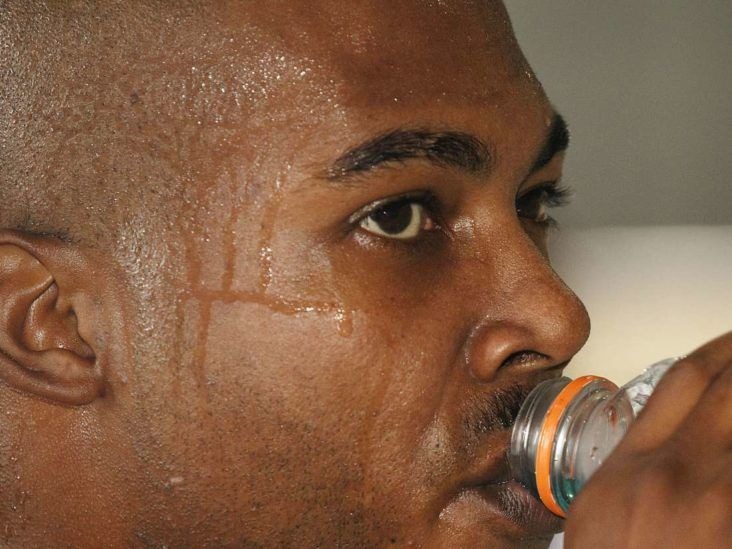A public health physician, Dr Gabriel Ameh, has told Nigerians to stay hydrated and avoid exhaustion as the period of abnormal hot weather sets in FCT.
Ameh gave the advice on Wednesday in Abuja, saying the Sun was causing heat leading to extreme temperatures, adding that with the epileptic power supply, it could trigger diseases, threaten livestock and even lead to death.
The physician said the heatwave and scorching sun experienced by residents could also trigger severe dehydration, respiratory infections aside from high temperatures.
Ameh said people should always keep their bodies hydrated by drinking lots of water.
He said the morbid conditions and underlying cardiovascular diseases that led to stroke could be caused by exhaustion and excessive heat.
“The consequences may be drastic; the weather is not stable; one minute it is hot, the next it is windy, dusty with a cooler temperature at night or dawn.
“I will advise people to avoid strenuous activities in hot environments; use fans or air-conditioning once there is power, and constantly keep yourselves hydrated at all times.
“Wear light clothings and avoid the sun if possible.
“It is better to avoid anything that will cause one to visit the hospital for any medical emergency at this period, especially with the economic challenges to grapple with,’’ he said.
He also advised the use of nose masks when the weather turned dusty and windy, adding that residents should find ways to adapt to climate change.
In a similar development, Mr Michael Ale, a resident, said that poor power supply had made the situation worse and almost unbearable.
Ale urged the Abuja Distribution Electricity Company (AEDC) to improve on power supply to residents in the city so that they could cope with the weather.
He, however, said that people must find alternatives to ease the situation by sitting and sleeping outdoors to enjoy the fresh air, even though it came with the heat during the day but cooler at night.
Others, he added, who had the luxury of using other power supplies like generating sets and solar energy, should use it to cool off.
Similarly, Mr Daniel Adeleke, another resident in Abuja, said he bathed more than three times a day to cool off the heat.
According to him, the change in weather had become inconsistent, unlike the previous year and seemed to have more effect on Nigerians since January.
He advised residents to ensure drinking of lots of fluids; avoid crowded environments; bath regularly and use anti-perspirant to avoid body odour, which was associated with excessive sweating.
“Thank God for the small rain that fell last night in Bwari; at least, the weather will be a bit cool today,” he said.









